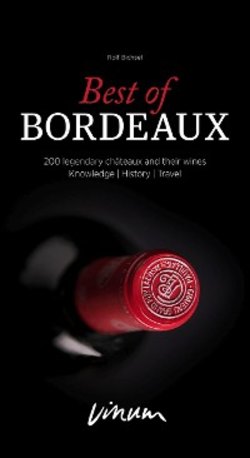Читать книгу Best of Bordeaux - Rolf Bichsel - Страница 22
Оглавление22
B) all other wines from surrounding areas and the remaining southwest were
refused access to the port until after Christmas, could not bear comparison with
other generally more powerful and transportable drinks such as coffee, tea and
chocolate. This also applied to brandy and there was strong competition from
Portugal – military and economic partners of England since the 1386 Treaty of
Windsor – and Spain whose ‘sack' from Jerez was sold by the Vintner's Company
in London from 1565. Did Shakespeare have Falstaff drink Bordeaux? Absolutely
not! The womaniser declaimed in the 1597 play Henry IV, part 2: ‘A good sherris-
sack (...) ascends into the brain (...) and warms the blood'. No mention of claret!
A successful product cannot just be plucked out of thin air: you first have to
analyse the production conditions, the market and sales opportunities. If the
conditions do not match the consumers' needs, you invest in clever marketing.
You identify consumer motivators – people who define the spirit of the age – and
allow them to test the product, invite them to a good meal or a relaxing few days
on a yacht. That is exactly what the de Pontacs and their neighbours skilfully
did – they analysed the natural conditions and made the best of them. Because
they had gravel mounds rather than the fertile sediment along the banks of the
Garonne, they simply gathered up the latter from every mud deposit they could
find in order to improve their gravel soils (anyone who believes that vines will
grow in stone alone will end up bitterly disappointed) and then planted their
